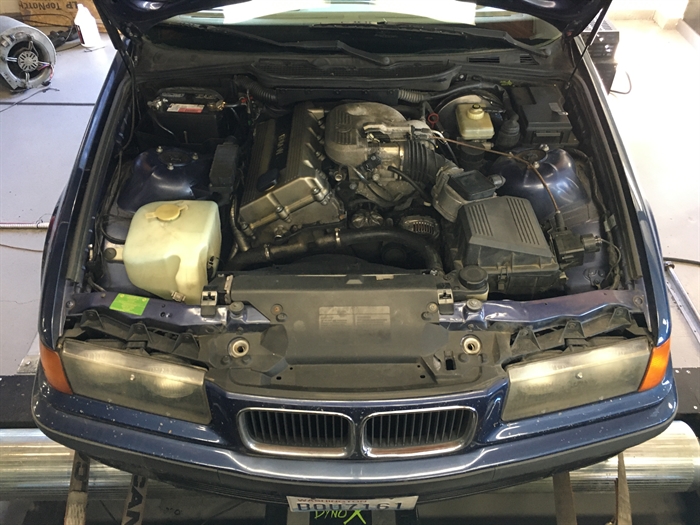How to Keep Your BMW 318ti Running Smoothly for several years
How to Keep Your BMW 318ti Running Smoothly for several years
Blog Article
Essential Considerations for Selecting the most effective Engine for Your Demands
In the world of picking the ideal engine to meet your demands, numerous crucial elements need precise factor to consider to make certain optimal efficiency and efficiency. From the nuanced balance between power and performance to the often-overlooked elements of upkeep and solution needs, each aspect plays a crucial role in identifying the most ideal engine for your details demands.
Power and Efficiency
When assessing engines for optimum efficiency, it is essential to prioritize both power output and efficiency. Power output gauges the capacity of an engine to generate energy, which directly impacts its efficiency. A high power result is crucial for requiring jobs such as high-speed demands or durable applications. It makes sure that the engine can deal with the workload effectively and effectively. Power alone is not adequate; effectiveness plays a considerable role in establishing the total performance of an engine. Efficiency describes exactly how well the engine transforms fuel right into usable power. An extra efficient engine will certainly supply much better gas mileage, lower discharges, and decreased operating costs. Striking the right equilibrium between power result and effectiveness is key to choosing an engine that meets your specific demands. It is essential to take into consideration elements such as the planned use of the engine, ecological effect, and long-term expense implications when making this choice. By very carefully examining both power and efficiency, you can select an engine that supplies optimal performance and fulfills your requirements properly.
Gas Performance and Economic Climate
In the realm of engine selection, the consideration of fuel effectiveness and economic climate holds vital relevance. Gas efficiency describes the engine's ability to transform fuel into power with marginal waste, straight affecting operating expenses and ecological sustainability. bmw 318ti. When picking an engine, assessing its gas economic situation is critical to identify long-term cost savings and ecological effect. Engines with greater gas effectiveness not just minimize fuel expenses but additionally lower carbon exhausts, adding to a greener procedure.

Compatibility and Application
Considering the fuel efficiency and economic climate of an engine, the following essential facet to address is its compatibility and application within specific operational contexts. Compatibility refers to exactly how well the engine incorporates with the overall system or tools it powers.
Various engines are made for details objectives, whether it be commercial equipment, marine vessels, automobiles, or power generators. Comprehending the designated application enables for the choice of an engine that can provide the required power output, torque, and functional characteristics.
Maintenance and Service Requirements
Maintenance and service needs play an important duty in guaranteeing the long life and optimal performance of an engine. Routine upkeep is essential to avoid malfunctions, expand the life-span of the engine, and maintain its effectiveness. When picking an engine, it is very important to consider the maker's advised upkeep timetable and the schedule of solution centers or certified technicians.
Elements such as the frequency of oil modifications, filter substitutes, and general examinations can substantially affect the engine's efficiency. Some engines might need even more regular servicing based upon their design and usage, while others may have longer intervals in between useful reference upkeep checks. It is essential to stick to these solution requirements to avoid pricey repairs and unexpected downtime.

Price and Budget Plan Considerations
Spending plan restrictions frequently play a significant duty in the decision-making process when selecting an engine for a certain application. When taking into consideration the expense and budget ramifications of choosing an engine, it is essential to examine not only the preliminary purchase price yet also the lasting expenses related to maintenance, gas intake, and prospective upgrades or fixings. It is essential to strike a balance between the ahead of time cost of the engine and its general lifecycle expenses to make certain that the selected engine continues to be economically sustainable throughout its operational life-span.
Elements such as fuel dependability, resilience, and performance can straight influence the total expense of possession of an engine. While this content an extra pricey engine may have greater upfront prices, it can potentially result in lower upkeep and gas costs over time, therefore offering better value in the long run.
Conclusion

Gas efficiency refers to the engine's capability to transform fuel into power with marginal waste, directly influencing operating costs and environmental sustainability.Variables affecting fuel effectiveness consist of engine layout, burning efficiency, and general efficiency optimization. Additionally, choosing the proper gas type and grade as suggested by the engine supplier can further improve performance and prolong engine lifespan.
Engines with great use attributes and conveniently offered components can reduce maintenance expenses and minimize the time the engine is out of operation - bmw 318ti. It is vital to strike an equilibrium in between the ahead of time price of the engine and its total lifecycle costs to ensure that the selected engine continues to be monetarily lasting throughout its functional life-span
Report this page